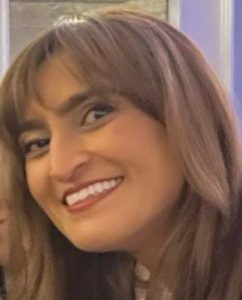 Sarah Rishi is a GP Partner in Birmingham
Sarah Rishi is a GP Partner in Birmingham
‘Sustainable healthcare’ is the buzzword these days. So, what exactly is sustainable healthcare? According to the Centre for Sustainable Healthcare, it ‘delivers high quality care without damaging the environment, is affordable now and in the future and delivers positive social impact’.1 But what about sustainability in terms of survival of the workforce? According to the Cambridge dictionary, sustainability is the quality of being able to continue over a period of time’.2 There is no doubt that general practice now is very different in almost every way compared to 20 years ago. But has enough been done over this period to ensure its longevity as a profession?
The short answer is no. But the good news is that a new generation of GPs are starting to do something about it. Still, this remains a painfully slow process. Over the past 20 years, paper records have been scrapped and patient information is now digitalised. This has made it easier to access information about our patients. This has become increasingly important: There has been an increase in the complexity in healthcare as life expectancy has increased. But the truth is that the computer processors being used in general practice are slow. A significant part of a clinical session is still spent waiting for things to load as computer systems struggle to drag out information from a central server or have to be restarted due to one thing or the other not working. This is even worse for doctors who try to log in remotely. It often feels akin to getting blood out of a stone.
If modern healthcare wants to improve access for patients, at the very least give doctors the tools to do their job. In 2024, this is more than a stethoscope and a tongue depressor.
If modern healthcare wants to improve access for patients, at the very least give doctors the tools to do their job. In 2024, this is more than a stethoscope and a tongue depressor. It is no secret that in addition to seeing and treating patients, a significant amount of a GPs time is spent completing administrative tasks. This includes making referrals, reviewing blood test results, reading documents e.g. letters from the hospital, actioning tasks e.g. related to prescriptions and signing repeat prescriptions. Partners have additional administrative work e.g. carrying out safety searches to ensure that patients on certain medications have had their monitoring done and to identify patients who have missed their appointment for monitoring and need to be booked in. So, a doctor working a full day usually has a morning surgery consisting of perhaps thirteen twelve-minute appointments. A morning surgery might run from nine a.m. to noon (three hours). An experienced GP will have completed their referrals for the morning in this time. They will also have spent 3 hours’ worth of energy on crucial decision making. Let’s say afternoon surgery starts at 3pm (many start afternoon clinics earlier than this). So, what happens between 12-3pm? This can include a meeting, home visits, debriefing with doctors in training, and tackling some of the administrative tasks mentioned above. But the volume of administrative work will usually mean that they are not able to complete all of their administrative tasks in this time frame. So, when will it get done? For a significant number of GPs it means doing it in their own time.
Some may say the solution is not to work full time. Of course, some GPs have to resort to this strategy. Or to working as locum GPs rather than in permanent posts. But what about making general practice more sustainable so that these highly trained professionals can complete all their work in working hours? And have the capacity to provide continuity of care to patients rather than having to resort to working part time or as a locum GP?
According to the Cambridge dictionary, sustainability is the quality of being able to continue over a period of time’
Technology is bringing some hope. Computer systems (when they work) have great potential and the full potential is yet to be realised. It is now becoming possible to automate some aspects of general practice. This includes automatic filing of some blood test results. This is not limited to filing of straightforward normal blood test results. The need to spend more time with his daughter motivated Arun Notaney, a GP with a special interest in cardiology to develop a programme that can tackle more complex blood result tasks e.g. appropriately tackling an abnormal HbA1c result without the need for input from a GP.3 This even has the benefit of removing the factor of human error where a tired doctor may accidentally file an abnormal HbA1c result as being normal. Work is also in progress for automation of other aspects of general practice such as prescription signing and processing of documents.
Of course, it is likely that there will always be work that requires input from a qualified professional but the help above will allow doctors to focus their energy on doing this work. Such work frequently requires complex decision making, and clinician exhaustion is a dangerous source of error.
Let’s hope that investment in technology allows current GPs to notice a positive difference to their work-life balance. Just like climate change, we need achievable goals for general practice to ensure its sustainability as a profession. Just like climate change, it will still be too little too late for the current workforce.
References
- https://sustainablehealthcare.org.uk/courses/sustainable-primary-care [Accessed 12.11.24]
- SUSTAINABILITY | English meaning – Cambridge Dictionary [Accessed 12.11.24]
- https://gpautomate.com/ [Accessed 12.11.24]
Featured Photo by Glenn Carstens-Peters on Unsplash






